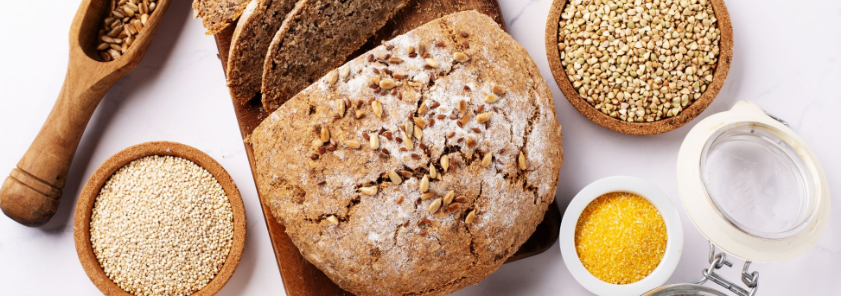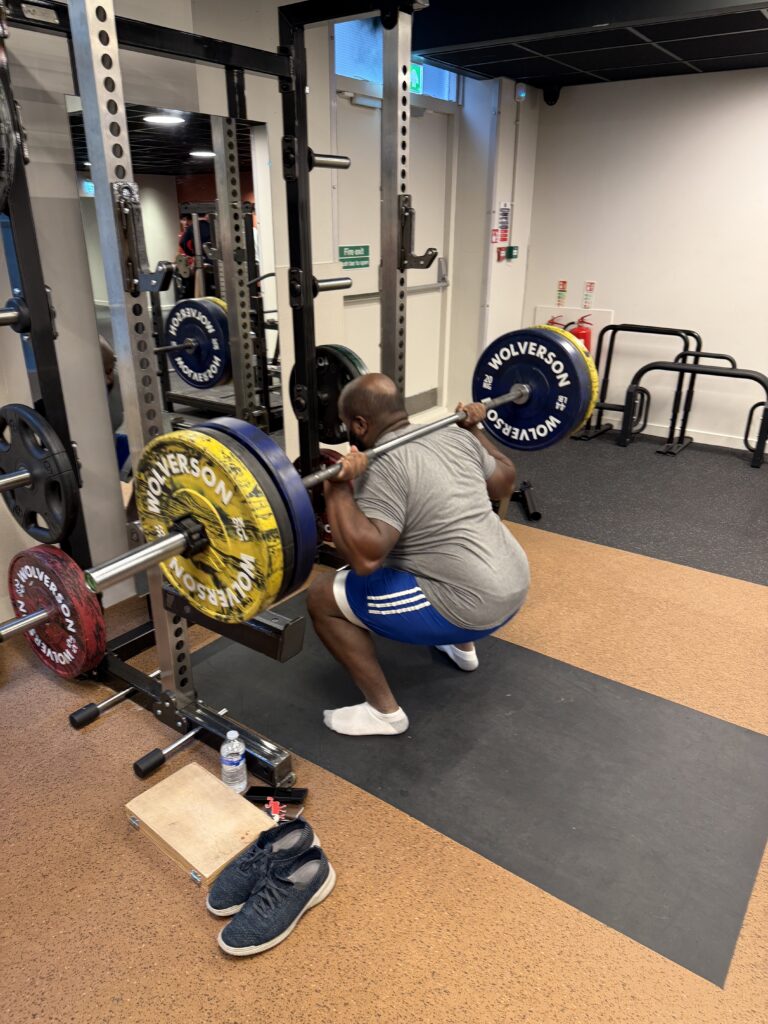Inflammation is your body’s natural response to injury, infection, or harmful stimuli. While acute inflammation is essential for healing, chronic inflammation—when your body remains in a constant state of low-grade inflammation—can significantly affect various aspects of your health, including your ability to lose weight. This often-overlooked factor might be the reason why your weight loss efforts feel stalled, even when you’re following a strict diet and exercise routine. In this blog, we’ll dive into how inflammation impacts weight loss, the signs to watch for, and how to combat it effectively.
What is Chronic Inflammation?
Chronic inflammation is a prolonged, low-level immune response triggered by various factors such as poor diet, stress, lack of sleep, or exposure to toxins. Unlike acute inflammation, which resolves quickly, chronic inflammation can persist for months or even years, silently damaging your body.
How Inflammation Affects Weight Loss
1. Disrupts Hormonal Balance
Chronic inflammation affects the production of key hormones involved in weight regulation, such as:
- Insulin: Inflammation can cause insulin resistance, where your cells don’t respond to insulin properly, leading to high blood sugar levels. This promotes fat storage, especially in the abdominal area.
- Leptin: Leptin is the hormone that tells your brain you’re full. Inflammation can lead to leptin resistance, making it harder to recognize when you’ve had enough to eat, increasing the likelihood of overeating.
- Cortisol: Chronic inflammation elevates cortisol levels, which encourages fat storage, particularly around the midsection.
2. Slows Down Metabolism
Inflammation interferes with your body’s metabolic processes. This can slow down your metabolism, making it harder to burn calories efficiently. A sluggish metabolism means fewer calories are burned at rest, making weight loss more challenging.
3. Promotes Fat Storage
Inflammation creates a vicious cycle in which excess fat tissue, especially visceral fat (around your organs), produces more inflammatory molecules called cytokines. These cytokines further perpetuate inflammation, making it increasingly difficult to lose fat.
4. Reduces Energy Levels
Chronic inflammation drains your energy levels, making it harder to stay active or commit to regular exercise. This creates a domino effect: less movement means fewer calories burned, which hinders weight loss progress.
5. Impairs Gut Health
Inflammation often stems from or contributes to poor gut health. An imbalanced gut microbiome can increase inflammation, hinder digestion, and reduce nutrient absorption, all of which play a role in your body’s ability to lose weight.
Signs That Inflammation is Affecting Your Weight Loss
How do you know if inflammation might be sabotaging your efforts? Here are some common signs to look for:
- Persistent bloating or digestive issues
- Fatigue and low energy levels
- Unexplained weight gain, particularly around the midsection
- Difficulty losing weight despite diet and exercise
- Joint or muscle pain
- Frequent illnesses or infections
- Skin issues such as acne or eczema
What Causes Chronic Inflammation?
There are several lifestyle and environmental factors that contribute to chronic inflammation, including:
- Poor Diet: High intake of processed foods, sugar, refined carbohydrates, and unhealthy fats can promote inflammation.
- Lack of Physical Activity: Sedentary lifestyles contribute to weight gain and inflammation.
- Stress: Chronic stress triggers the release of inflammatory chemicals.
- Poor Sleep: Insufficient or low-quality sleep disrupts your body’s natural healing processes.
- Environmental Toxins: Exposure to pollution, chemicals, and pesticides can contribute to inflammation.
Foods That Promote Inflammation
Certain foods are notorious for increasing inflammation in the body. If you’re struggling with weight loss, consider reducing or eliminating:
- Processed and packaged foods
- Sugary drinks and snacks
- Trans fats (found in fried foods and margarine)
- Refined carbohydrates (like white bread and pasta)
- Excessive alcohol
- Artificial sweeteners and additives
Foods That Fight Inflammation
Incorporating anti-inflammatory foods into your diet can help your body heal and promote weight loss. Some of the best options include:
- Fruits and Vegetables: Leafy greens, berries, tomatoes, and cruciferous vegetables like broccoli and cauliflower.
- Healthy Fats: Avocados, olive oil, and fatty fish like salmon and mackerel.
- Whole Grains: Quinoa, brown rice, and oats.
- Spices: Turmeric and ginger are known for their anti-inflammatory properties.
- Nuts and Seeds: Almonds, walnuts, flaxseeds, and chia seeds.
- Green Tea: Packed with antioxidants that reduce inflammation.
Lifestyle Changes to Reduce Inflammation
1. Prioritize Gut Health
Since much of your immune system resides in your gut, maintaining a healthy gut is key to reducing inflammation.
- Incorporate probiotics and prebiotics, such as yogurt, kefir, and fiber-rich foods.
- Avoid foods that irritate your gut, like artificial additives and certain dairy products if you’re lactose intolerant.
2. Exercise Regularly
While chronic inflammation can lower your energy, regular moderate exercise helps reduce inflammatory markers. Activities like walking, yoga, and swimming are excellent options.
3. Manage Stress
Chronic stress can worsen inflammation. Practice stress management techniques like meditation, deep breathing, or mindfulness to help your body relax.
4. Get Quality Sleep
Aim for 7-9 hours of uninterrupted sleep each night. Sleep allows your body to recover and regulate inflammatory processes.
5. Stay Hydrated
Drinking plenty of water helps flush out toxins that contribute to inflammation. Aim for at least 8-10 glasses daily.
6. Limit Toxin Exposure
Reduce exposure to harmful chemicals by choosing organic foods, using natural cleaning products, and avoiding plastic containers for food storage.
When to Seek Help
If inflammation continues to hinder your weight loss efforts despite lifestyle changes, it may be time to consult a healthcare professional. They can run tests to measure inflammatory markers and help create a tailored plan for reducing inflammation.
Conclusion
Chronic inflammation is a hidden barrier to weight loss that can disrupt your hormones, slow down your metabolism, and drain your energy levels. However, by making targeted dietary and lifestyle changes, you can combat inflammation, improve your health, and finally see the progress you’ve been working toward.
Remember, weight loss isn’t just about counting calories; it’s about creating a healthy environment within your body where weight loss can naturally occur. For more actionable insights and more tips in our blog, explore how to optimize your diet and lifestyle for long-term success.
FAQs About Inflammation and Weight Loss
1. Can inflammation cause weight gain?
Yes, inflammation can lead to hormonal imbalances, fluid retention, and increased fat storage, particularly around the abdomen.
2. How can I test for inflammation in my body?
Doctors can run blood tests to check for inflammatory markers like C-reactive protein (CRP) and interleukin-6 (IL-6).
3. How quickly can I reduce inflammation?
With dietary and lifestyle changes, you may notice improvements in energy levels and reduced bloating within a week, though long-term inflammation may take months to resolve.
4. Can supplements help with inflammation?
Yes, omega-3 fatty acids, turmeric, and vitamin D are known to help reduce inflammation. Always consult a healthcare provider before starting any supplements.
5. Is all inflammation bad?
No, acute inflammation is part of the body’s natural healing process. It’s chronic, persistent inflammation that negatively impacts health and weight loss.









